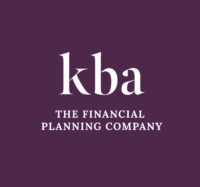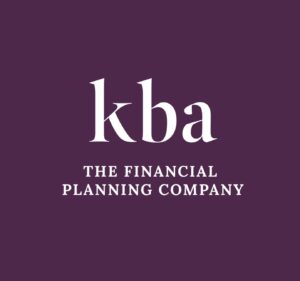Hello, my name is Sarah Hogan from KBA, the financial planning company. Today I want to talk to you about some simple concepts to try and get you to understand how important it is to save on a regular basis and take control of your financial planning.
I’m just going to share my screen – you’ve got the delight of my drawing skills this morning. Any of my clients who are watching this, or are on my team, know how much I love drawing on a whiteboard and the joys of modern technology mean that we can do these types of things on videos with fantastic apps and pens and things. So, you still get those delights, even though we are in a lockdown. So, what do I want to talk to you about today?
Everybody, obviously, is zero when they’re born and let’s say for the purpose of this, that you’re going to live until you’re 80. Let’s keep the maths simple.
So, for the first 20 years of your life, that’s when you’re at school, it’s when you’re at college, it’s when you’re at university. Yes, it might be a little bit less, yes, it might be a little bit more, but, essentially, the first 20 years of your life are when you’re learning. Let’s say you’re going to retire at 60. From 20 to 40 and 40 to 60, that’s when you’re going to be working, hopefully.
So, during that timeframe when you’re working, I’m presuming that you’re going to expect a pay packet every month, whether that’s an employee pay packet or a self-employed one. So, if there are 12 months in a year and there are 20 years in each one of these segments, that means that you’re expecting 240 pay packets. Let’s say for argument’s sake that you’re going to save 5% of that – this means that you’ve saved 12 pay packets.
You can amend these figures if you want to, it’s quite simple, and you want to run it yourself to see how on track you are. You could use workplace pension percentages if that’s what you’re doing, or however you want to do that. But the concept is simple.
You could then save another 12 pay packets in the 20 years between age 40 to 60 using the same calculation as above, bringing the total to 24 pay packets’ worth of pension savings.
If you’re going to retire at 60 and to live until you’re 80, then I’d guess that you’re going to want a pay packet every month. 12 pay packets a year. 20 years. You need 240 pay packets. But you’ve only saved 24. Where are you going to get the money from?
If 0-20 is your learning phase, then the rest is your earning phase. What we want to do is make sure that this isn’t your yearning phase.
Ask yourself a question: how many pay packets have you got left before retirement? Whatever that point is, work it out.
If you do it in years, 20 years sounds like a long time despite the fact that every year goes quicker. But if you do it in pay packets and start to count them down, you’ll realise you’re getting there a lot quicker than you thought. Now, there are a few factors to consider.
Obviously, there are a few concepts that we can talk through, but this is just a simplistic idea to help you understand its importance and where you are on that on that journey.
Your State Pension would contribute to some of that, let’s hope. Employers pay into your pension scheme, so I would hope everybody watching this is absolutely maximising their employer pension payments. It’s free money, so why would you not do that?
You might retire at 60, but live a lot longer than 80. And most people now, if you look at research from the Office of National Statistics, live well into their 80s, some beyond!
What happens if you lose your job? What happens if you’re off work for a few months with sickness? That could have major impacts on your financial planning. If you’ve not got things like income protection in place, and you’re halfway through this plan and suddenly you have two years off with an illness, what is going to happen to those savings? What happens if you get divorced? What happens if you die before you get to 60, and there are other people in your family who are reliant upon your earning capacity? You need to consider their financial future as well, so financial planning takes a family approach in most cases. There are lots of different factors that could come into this, but the point is to get you thinking about what you need to be doing.
This is not advice – I’m not telling you to put money into your pension, an ISA or a property. The point is: do something and do it as soon as possible. The earlier you start, the easier that hill is to get up. It’s steeper, obviously, if you start from 40. You’ve only got 20 years in order to get to that point. Whereas if you start at 20, you’ve got double that amount of time.
So how many pay packets have you got left? The earlier you start, the magic of compound interest or compound returns takes effect as well, which is just phenomenal over the long term. And if you do choose a stocks and shares based approach, either by investments, or Stocks and Shares ISAs or pensions, for example, then invest it well. And remember that investing in the stock market is like going upstairs with a yo-yo; there are going to be peaks and troughs. But if you think about that image, the general consensus is always going to be up. Or certainly that’s what history has shown us.
The idea is that you work with a financial planner. That means that if there is a downturn, as we’ve seen in recent months and in the credit crunch, and it seems that every few years we have one of these events, you work with somebody that calms you during that storm and doesn’t let you bail out at the bottom of the market.
And yet, you might have a way to go and may be thinking “what if I don’t get there?” So, it is a balance. It’s a balance between saving enough, so that if you live a long and happy retirement (and people are living longer, they’re healthier for longer, they need more money in the early years) that you’ve saved enough so that you can enjoy that retirement. But also that you’ve spent enough and had enough life experiences today, that if you don’t get there, there are lots of memories and you’ve lived a good life.
What’s your number? How much do you need? Do you have any idea? If you’ve got no idea how much you need in retirement, how do you know where you need to get to? What net income, if you were retiring today, per month, would you need in order to live the lifestyle that you want to.
And where we’re trying to get to you having enough, both today and in the future. It’s quite an American saying, but this is all so that you can choose between “vacation and vocation”, both today and when you ultimately retire. And so that you’re not choosing between heating and eating in retirement.
Hopefully you’ve got a financial planner who is working with you on your financial future and that can guide you to get there. But, if you do want to speak to a member of our team, then have a look in whatever format this video has come to you, whether it’s on social media or in an email, and the details to contact the team will be there. Alternatively, have a look at www.kbafinancial.com and the contact details will be on there. We’d love to hear from you. Have a great day.


